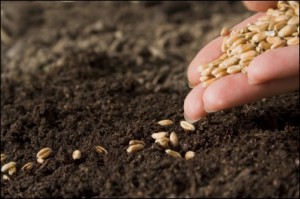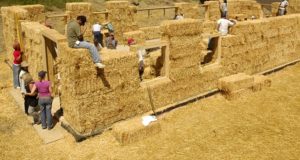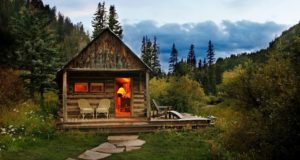 With all the economic uncertainty in the world, people are turning to traditional items of value again. Precious metals prices are hitting record highs, but they are not the only traditional store of value that is gaining ground. Another group of commodities – seeds – are returning to their historical place as treasures to be carefully hoarded.
With all the economic uncertainty in the world, people are turning to traditional items of value again. Precious metals prices are hitting record highs, but they are not the only traditional store of value that is gaining ground. Another group of commodities – seeds – are returning to their historical place as treasures to be carefully hoarded.
If the idea of seeds as a measure of value seems odd, remember that it is not without precedent. Early writers describing the men and women coming to America spoke of their desire to bring good seeds to a good land, where they could build a city on a hill and live out their ideals. Their lofty dreams were doomed without regular crops, which required them to guard their seeds stores carefully. In the modern era of genetically modified foods and fears of global shortages, having a store of survival seeds is once again the linchpin in dreams of freedom, safety, and well-being.
Seeds of Freedom: The Pilgrim Era
When they left the Mayflower to explore their new land, Pilgrims considered themselves truly blessed to have found items of true value on their first expedition. It wasn’t gold, or silver, or even shelter – what the Pilgrim writer William Bradford exclaimed again and again was the discovery of seed stores in the form of corn and beans. This was viewed as proof that the land was a good land, and that here was a place that the Pilgrims could make a life.
The seeds represented a surety that crops would grow and that the Pilgrims need not die in the new land. They wouldn’t have to return to England, or even go back to Europe. As long as they maintained sufficient seed stores, they could have their freedom in America. Writings by Bradford and later John Winthrop show that seeds for plantings were not touched even in times of famine or hunger, such was their value and their meaning to the Pilgrim community.
Seeds of Security: The Modern Era
In the modern era, the ubiquitous nature of supermarkets and grocery stops has pushed seed stores from the limelight. However, concerned individuals are making strides to build communities of seed savers. Their aim is similar to that of the pilgrims – to keep the food supply secure and free, despite the threats from all sides.
The enemy now is not the harsh winters or even the raging natives. Instead, modern seed savers have to protect their store of unmodified and authentic plant varietals against cross-pollination with genetically modified plants. Efforts by major agricultural players in the emerging world show that they have few scruples about blending their plants with local heirloom varieties, even if it means no seeds for the future. As a result, seed savers who understand the enduring value of heirloom plants must be extra vigilant to preserve their supply.
Partnership is a key element of the seed stock process. Centers in Peru, Iowa, and the Appalachian Mountains have sprung up with the express intention of doing as the Pilgrims did – holding seeds as truly precious and truly valuable – and preserving their integrity. With careful storage and monitoring of incoming seeds and seed exchanges, it is possible to preserve the security of the world food supply against control by any one group.
Seeds of the Future: The Survivalist Era
Along with preserving seeds to fight against one group’s control of the food supply, those who value heirloom seeds also save them to ensure their personal survival. The seeds to make a garden full of delicious fruits and vegetables are more precious than gold due to their potential to free growers from dependence on the global food chain and the decisions of others. Import/export restrictions, price inflation, and other modern concerns do not deeply affect those who are in control of their own food sources.
This motivation for seed saving is especially important in preparedness and survivalist camps. Rather than valuing the rarest varietals like a seed bank, they value seeds who give strong yields and healthy, non-genetically modified fruits. Planning ahead, many have their own gardens to build stores or are buying survival seed kits from specialty retailers. The time and effort involved can be costly, as can starter kits, but many feel the prices are well-worth the value seeds provide.
With all of the uncertainty in the modern world economically and institutionally, it is almost a throwback to the rough and unknown days ahead that the Pilgrims faced when they came to the New World from Europe. Small wonder then that the same things held dear by the Pilgrims – seeds – are once again climbing in value.
If you liked this article you may be interested in this product from our sponsor.

 Off The Grid News Better Ideas For Off The Grid Living
Off The Grid News Better Ideas For Off The Grid Living



